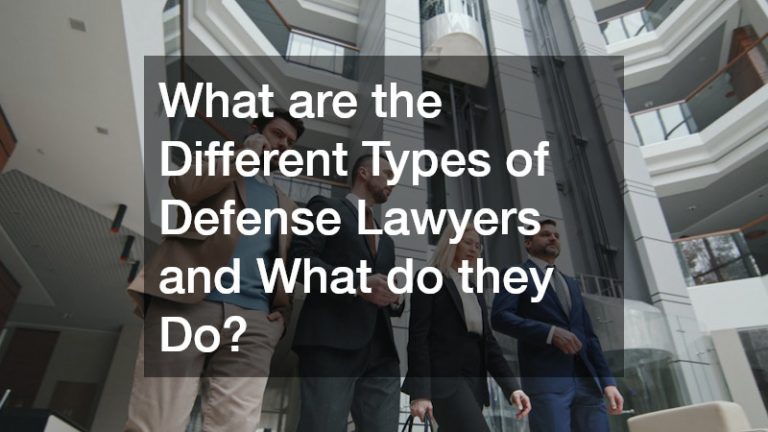The legal system is a complex network of rules, procedures, and specialized professionals working to uphold justice. Among the most critical players in this system are defense lawyers. These attorneys are responsible for ensuring that individuals, organizations, and even government entities are fairly represented when facing legal challenges. Their role is not simply to argue a case in court but to provide protection for the rights of their clients, craft legal strategies, and navigate the intricate landscape of statutes, precedents, and procedural requirements.
Defense lawyers exist in many forms, each with unique areas of specialization. Some focus on criminal matters, representing individuals accused of crimes, while others dedicate their expertise to civil cases involving disputes over money, contracts, or injuries. Still others serve corporations, public agencies, or vulnerable populations such as the elderly. Understanding the distinctions among these lawyers helps clarify when and why their services may be necessary.
This article explores the different types of defense lawyers, from criminal and civil attorneys to corporate and specialized practitioners. It also examines the challenges they face, their ethical obligations, and their overall impact on the justice system. By understanding the roles of these professionals, individuals are better equipped to seek appropriate representation, safeguard their rights, and make informed decisions when navigating legal issues.
What is a Criminal Defense Lawyer?
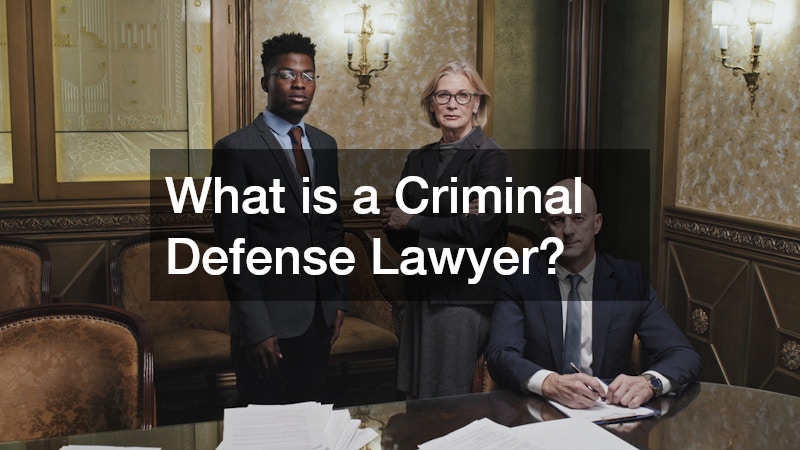
Criminal defense lawyers represent individuals or organizations accused of committing crimes, ranging from minor misdemeanors to serious felonies. Their job is to ensure that defendants receive a fair trial, that evidence is properly examined, and that constitutional rights—such as the right to remain silent or to confront accusers—are upheld.
The responsibilities of a criminal defense lawyer extend beyond court appearances. They conduct independent investigations, negotiate plea deals, file motions to suppress illegally obtained evidence, and prepare for trial by analyzing every aspect of the prosecution’s case. Their expertise lies in criminal statutes, sentencing guidelines, and procedural rules.
For example, someone accused of theft, assault, or fraud would rely heavily on a criminal defense lawyer to minimize penalties or avoid conviction altogether. In family-related criminal matters, such as unpaid child support leading to contempt charges, the expertise of both a child support attorney and a defense lawyer might intersect. This demonstrates how criminal defense often overlaps with other areas of law, highlighting the importance of specialized knowledge.
What is a Civil Defense Lawyer?
While criminal defense lawyers deal with state-imposed penalties, civil defense lawyers handle disputes between individuals, businesses, or organizations that typically involve compensation rather than incarceration. These attorneys defend clients against lawsuits ranging from personal injury claims to breach-of-contract disputes.
For example, if someone sues a company for negligence, a civil defense lawyer would represent the company by challenging liability, disputing damages, or negotiating settlements. Their role is crucial in protecting clients from financial loss, reputational harm, and prolonged litigation.
Workers comp lawyers, a subset of civil defense attorneys, specialize in cases involving workplace injuries. They represent employers or insurance companies in defending against claims filed by injured employees. Their expertise ensures that claims are legitimate, costs are controlled, and the legal obligations of employers are met without unnecessary financial burden.
Civil defense lawyers play a key role in balancing fairness. They ensure that not every claim results in automatic payouts, but rather that the truth of each case is carefully examined.
What Does a Public Defender Do?
Public defenders are government-appointed attorneys who represent individuals unable to afford private legal counsel. They primarily work in the criminal justice system and are essential to ensuring that everyone, regardless of income, has access to a fair defense.
A public defender performs many of the same functions as a private criminal defense lawyer: interviewing clients, investigating facts, negotiating plea deals, and representing clients in court. However, public defenders often manage heavy caseloads and must work under tight resource constraints.
Their role is invaluable in protecting the rights of indigent defendants, many of whom would otherwise face the legal system unrepresented. For example, a person involved in a property dispute without means to hire an estate lawyer might face parallel criminal allegations, in which case a public defender could step in to provide critical representation.
Public defenders embody the principle that justice should not depend on financial capacity, making them indispensable to the fairness of the legal system.
Who are Corporate Defense Lawyers?
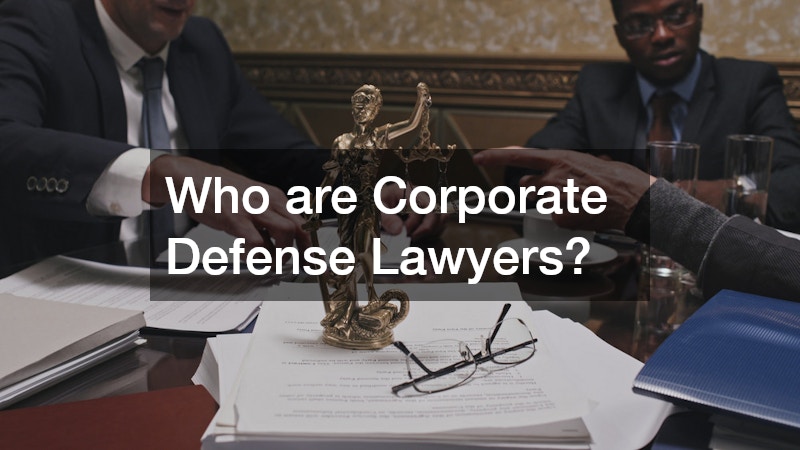
Corporate defense lawyers specialize in representing businesses, organizations, and corporate executives facing legal action. These cases often involve regulatory compliance, employment disputes, shareholder issues, or allegations of corporate misconduct.
Their responsibilities include developing strategies to protect companies from liability, advising on legal risks, and representing corporations in court. They may also work behind the scenes to ensure that companies adhere to laws, preventing litigation before it arises.
Corporate defense work sometimes intersects with family-related disputes, especially when family-owned businesses are involved. A family lawyer might be consulted alongside a corporate defense lawyer to address ownership transitions, inheritance disputes, or shareholder conflicts within family-run enterprises.
In today’s highly regulated business environment, corporate defense lawyers are vital in protecting organizations from both financial penalties and reputational harm.
Specialized Defense Lawyers
In addition to general categories like criminal, civil, and corporate defense, some attorneys focus on highly specialized areas of law.
- Elder lawyers: These attorneys advocate for the elderly, defending them against abuse, fraud, or disputes over guardianship and healthcare rights. Their defense work often intersects with family law, probate, and medical issues.
- Environmental defense lawyers: Represent companies or individuals accused of violating environmental laws, such as improper waste disposal or pollution.
- Military defense lawyers: Represent service members in courts-martial or military tribunals.
These specialized defense lawyers bring unique knowledge to niche areas of law, ensuring that clients receive representation tailored to their circumstances.
How Do Defense Lawyers Prepare for Court?
Preparation is central to a defense lawyer’s effectiveness. Before stepping into a courtroom, attorneys spend countless hours investigating the case, interviewing witnesses, reviewing police reports, and gathering expert testimony.
A criminal defense lawyer may file motions to suppress evidence obtained illegally or challenge the credibility of witnesses. Civil attorneys might compile detailed financial records or expert reports to undermine the opposing party’s claims.
Preparation also involves building a compelling narrative. Defense lawyers must weave evidence into a story that resonates with judges and juries, ensuring that their client’s perspective is heard and understood.
Without meticulous preparation, even strong cases risk unfavorable outcomes.
What are the Ethical Obligations of Defense Lawyers?
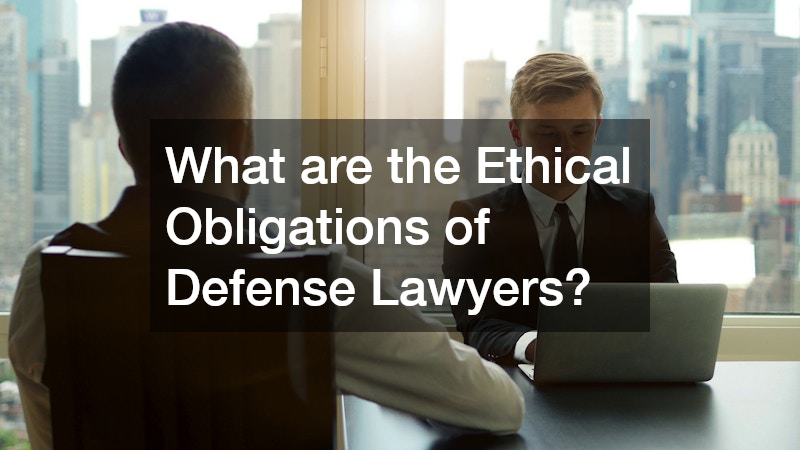
Defense lawyers carry significant ethical responsibilities. They must act in their clients’ best interests while also adhering to strict professional codes of conduct. Key obligations include maintaining client confidentiality, avoiding conflicts of interest, and providing competent representation. Attorneys must balance zealous advocacy with truthfulness to the court, which can be difficult in contentious or high-profile cases.
One of the most misunderstood aspects of defense law is that attorneys may defend clients they know—or strongly suspect—are guilty. Their duty is not to prove innocence but to ensure that the prosecution meets its burden of proof and that due process is followed. Without such protections, anyone could be convicted on weak evidence or improper procedure.
For example, a dui lawyer may defend a client caught driving under the influence. Even if guilt seems clear, the lawyer must verify that the arrest was lawful, that testing equipment was calibrated correctly, and that the defendant’s constitutional rights were respected.
Ethical obligations extend to fairness outside the courtroom as well. Lawyers must communicate honestly with clients, avoid misleading advertising, and remain accountable to their professional associations. These principles ensure that justice is balanced, protecting both defendants and the overall integrity of the legal system.
How to Choose the Right Defense Lawyer?
Selecting the right defense lawyer can make or break a case. Factors to consider include the lawyer’s specialization, experience, communication style, and reputation. For example, someone facing criminal charges should seek a criminal defense lawyer, while a business involved in regulatory disputes may benefit from a corporate defense specialist. Aligning the lawyer’s area of expertise with the client’s unique legal issue is one of the most important steps in securing effective representation.
A local attorney may also offer practical advantages, such as familiarity with regional courts, judges, and opposing counsel. This local knowledge can streamline proceedings and improve outcomes, since understanding how a particular judge interprets laws or how opposing lawyers negotiate can shape strategy. Accessibility is another advantage—local lawyers are easier to meet in person, which fosters stronger communication.
Clients should carefully evaluate a lawyer’s track record, their willingness to explain complex legal issues in simple terms, and their ability to craft clear strategies. Personal comfort and trust are equally important—legal matters are often stressful, and a client must feel confident in their attorney’s advocacy.
Ultimately, making an informed choice ensures the client is positioned for the best possible defense, reducing uncertainty and building a foundation for a favorable outcome.
What are the Key Challenges Defense Lawyers Face?
Defense lawyers encounter numerous obstacles in their work. High caseloads, limited resources, and emotionally charged cases can create immense pressure. In public defense offices, for example, attorneys may handle dozens of cases simultaneously, leaving little time to dedicate to each client. This can challenge their ability to investigate thoroughly or provide the personalized attention each case deserves. Additionally, public perception often casts defense lawyers in a negative light, particularly when representing unpopular clients or those accused of serious crimes.
Family-related cases present particular challenges. For instance, a family lawyer defending a parent in a custody battle may face emotionally complex dynamics, with accusations that are deeply personal and often fueled by raw emotions. Evidence may be subjective, hinging on credibility rather than clear-cut facts, making outcomes more uncertain. Similarly, criminal defense attorneys often battle against the stigma associated with defending individuals accused of heinous crimes, such as violent offenses. These lawyers may be criticized for simply doing their job, even though their role is essential in protecting constitutional rights.
Balancing zealous advocacy with ethical constraints requires resilience, strong communication, and a deep commitment to justice. These challenges underscore the demanding yet critical role defense lawyers play in upholding fairness within the legal system.
How Do Defense Lawyers Impact the Justice System?
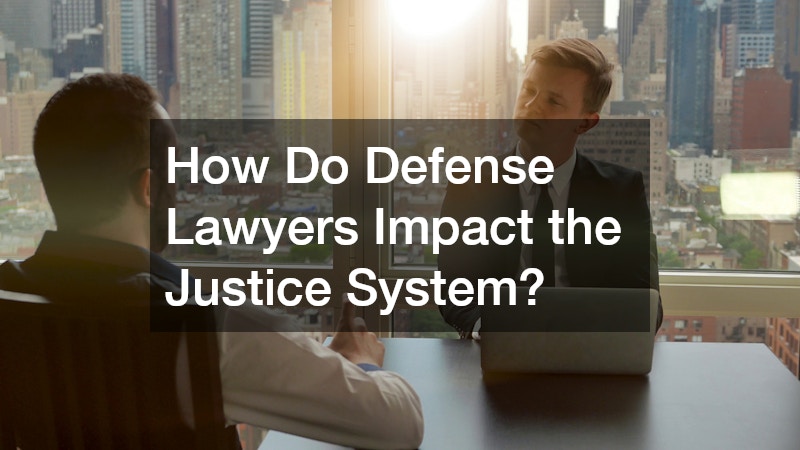
Defense lawyers serve as a vital counterbalance to prosecutorial and civil claims, ensuring that trials are fair and rights are respected. Their role extends beyond individual cases to shaping broader legal standards. Through precedent-setting cases, defense attorneys influence interpretations of constitutional rights and procedural fairness. This impact resonates not only with their clients but with society as a whole, as future cases often rely on the legal precedents established in earlier trials.
For example, bankruptcy attorneys defending clients in debt-related litigation not only assist individuals but also impact how courts interpret financial regulations, debt collection practices, and consumer protection laws. These rulings can change how creditors and debtors interact for years to come. Similarly, criminal defense lawyers safeguard protections such as the right against unlawful searches and seizures, ensuring that police procedures remain lawful and constitutional.
Defense lawyers also influence legislative reform by highlighting systemic flaws encountered in court. Their advocacy draws attention to unfair sentencing practices, discriminatory applications of law, or gaps in consumer protections. By challenging overreach and advocating for due process, defense lawyers strengthen the integrity of the justice system. Their work ensures that justice is not one-sided but carefully balanced, protecting both individuals and the principles of democracy.
Conclusion
Defense lawyers occupy a central role in safeguarding justice across a wide spectrum of legal challenges. From criminal and civil cases to corporate disputes and specialized areas, these professionals provide expertise that protects rights, ensures due process, and maintains fairness within the legal system.
Their responsibilities extend beyond the courtroom, encompassing preparation, negotiation, and ethical decision-making. Whether serving as a dui lawyer, public defender, or corporate attorney, each plays a crucial role in balancing the scales of justice.
Ultimately, defense lawyers embody the principle that everyone deserves fair representation, regardless of the complexity of their case or the public perception surrounding it. By understanding the different types of defense lawyers and their unique functions, individuals and organizations can better navigate legal challenges and secure the protection they need.

